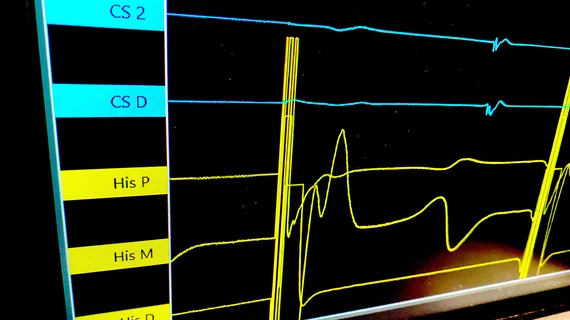FDA clears 2 new AI models that help with the diagnosis and treatment of arrhythmias
CathVision, a Denmark-based healthcare technology company focused on the electrophysiology lab, has received U.S. Food and Drug Administration (FDA) approval for two new advanced artificial intelligence (AI) models, PVI Analyzer and Signal Complexity. While PVI Analyzer was designed to confirm PVI isolation, Signal Complexity is used to quantify the complexity of atrial fibrillation (AFib) in patients with persistent AFib.
The two algorithms are now accessible through the company’s ECGenius EP Recording System on a price-per-use basis. ECGenius, which the FDA first cleared back in May 2022, captures high-fidelity, low-noise electrocardiogram (ECG) recordings for the diagnosis of AFib and other arrhythmias. The addition of these new algorithms is expected to help electrophysiologists evaluate the success of cardiac ablation procedures.
According to CathVision, ECGenius is now the first recording system of its kind capable of using AI to interpret ECG results.
“Our mission has always been to put electrophysiologists in the best position to improve clinical outcomes,” Mads Matthiesen, CEO of CathVision, said in a prepared statement. “Incorporating AI-based analytics into the ECGenius System is another important demonstration of our unique ability to deliver on that mission and achieve groundbreaking milestones. With clinical enhancements exclusively available in our ECGenius System, we maintain our leadership position in equipping electrophysiologists with the technology necessary to elevate patient outcomes.”
CathVision first hinted that AI capabilities were coming to the ECGenius system in August 2022, when the company closed a financing round worth $7.2 million from existing investors.
AI continues to gain momentum in electrophysiology
More and more advanced algorithms are now being used to treat arrhythmias. Back in May, Jagmeet Singh, MD, professor of medicine at Harvard Medical School and founding director of the Resynchronization and Advanced Cardiac Therapeutics Program at Mass General Hospital, spoke to Cardiovascular Business about this trend.
“I think AI has a phenomenal role in not just helping with diagnosing, but with predicting and preventing disease,” he said. “It also is assisting with the workflow and how we actually manage our patients.”

